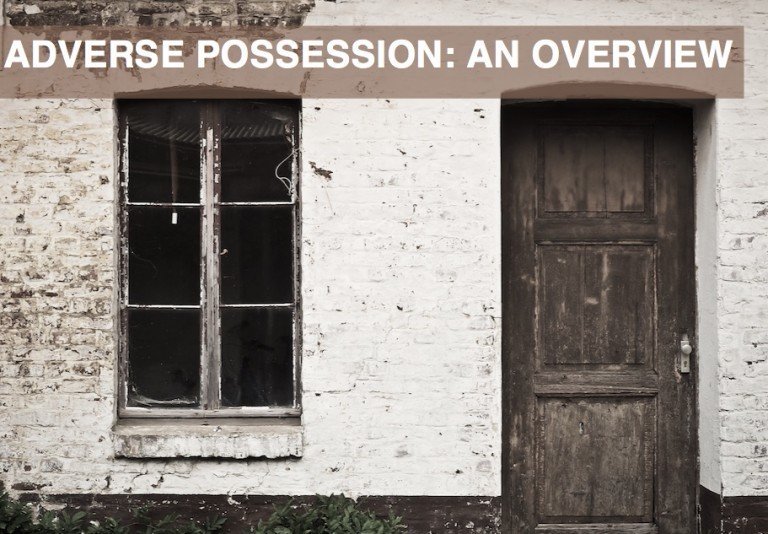

Updated on February 12, 2024
It occurs when someone takes possession of another person’s property without their permission and meets certain legal requirements.
In California, for a person to claim adverse possession, they must demonstrate that they have been in continuous and exclusive possession of the property for at least five years, openly and notoriously, and under a claim of right or with the belief that they have the legal right to possess the property.
Additionally, the possession must be hostile or adverse to the true owner’s interest in the property, and the true owner must have been aware of the possession or should have been aware of it.
If these requirements are met, the person in possession can potentially acquire legal ownership of the property through adverse possession, subject to certain exceptions and defenses.
It’s important to consult with a qualified real estate attorney if you are facing a potential adverse possession claim or have questions about your property rights.
Possession must be held under either a claim of right or color of title. The adverse possessor must either:
It is not enough to just be on the land; you have to show that you intend to make the property your own.
There must be “actual, open and notorious” occupation of the premises in such a manner that constitutes reasonable notice to the record owner. As one court put it back in 1890, the adverse possessor “must unfurl his flag on the land, and keep it flying, so that the owner may see, if he will, that an enemy has invaded his domains, and planted the standard of conquest.”
Occupation must be both exclusive and hostile to the title of the true owner. This is thankfully not an invitation for the adverse claimants to engage in a boxing match! To qualify as “hostile and exclusive”, the occupation must be not have permission from the owner of the property, and must not recognize any of the property owner’s rights. The adverse possessor must be the only person to use the property during the required time period.
There must be uninterrupted and continuous possession for at least five years. Once the adverse possessor invades the property, the clock begins ticking on the five year requirement. If the true owner resumes possession, records notice, or files an action to quiet title, the clock is stopped.
The possessor must pay all taxes levied and assessed on the property during the five year period. An adverse possessor can add her name to the tax assessment roll for the property by filing a declaration with the county assessor. If she does not, she must ensure that she pays all taxes before they are paid by the true owner, otherwise this element has not been satisfied.
Once the five elements of adverse possession have been satisfied, it is important that the adverse possessor perfect their title by filing an action for quiet title and having their title recorded.
Until the title appears in public records, the prior owner or his successor in interest can file a quiet title action to establish title against any and all adverse possessors.
Are you a property owner in the biggest city in the country?
It’s possible that someone, such as a neighbor, stranger, trespasser, or tenant, could take your land through adverse possession. It’s important to know your rights when someone encroaches on your property.
Schorr Law can assist in preventing an interested party from trying to obtain ownership of your property. It’s not uncommon for property owners to be unsure about their property rights.
You might not think that someone would try to legally steal your land, but adverse possession can occur when someone takes possession of your property and remains there for a specified period of time, eventually making a legal claim for ownership in court.
Our attorneys can help analyze or litigate your potential adverse possession claim. To schedule a consultation, you can call 310-954-1877, email [email protected], or you can fill out our contact form on the side of the page.
We have successfully taken adverse possession to trial and won! We know the ins and outs and how our experience with adverse possession also relates to prescriptive easement claims.
OTHER AREAS WE SERVE
Ventura County – San Bernardino County – San Diego County – Bakersfield Kern County – Orange County – San Luis Obispo County – Santa Ana – Riverside CA